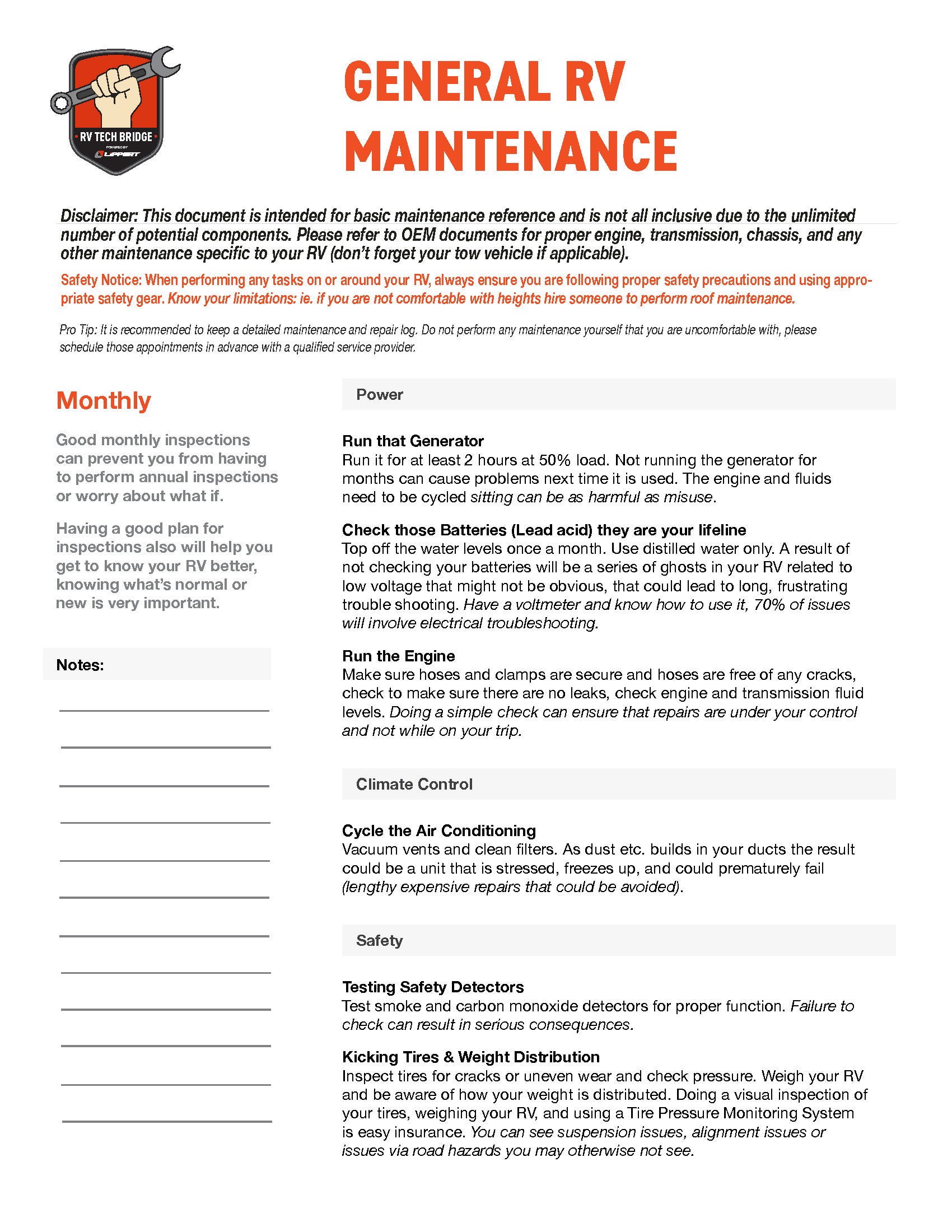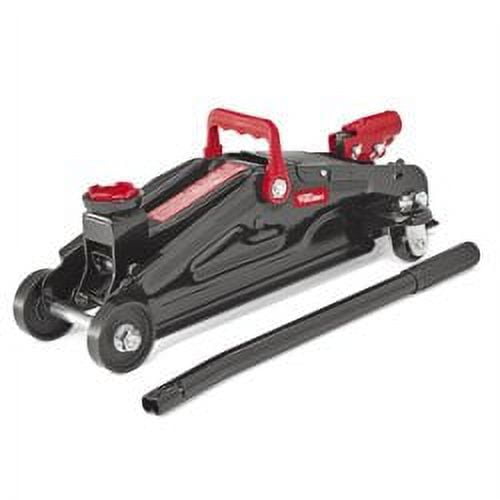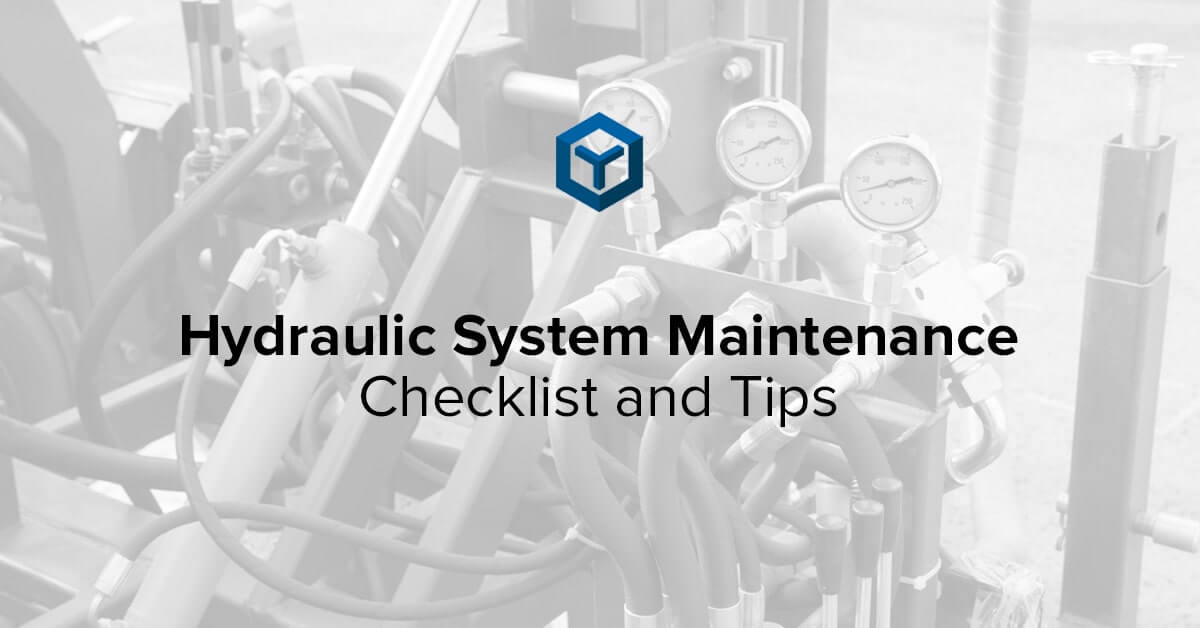Hydraulic fluid is essential for RV jacks. This fluid helps in the smooth operation and stability of the jacks, ensuring the proper leveling and support of the RV.
RV jacks, also known as stabilizer jacks, are crucial for maintaining stability and preventing swaying while the RV is parked. Hydraulic fluid serves as the lubricant and power source for these jacks, allowing them to function effectively. Without adequate hydraulic fluid, the jacks may not extend or retract properly, leading to compromised stability and potential damage to the RV.
It is important for RV owners to regularly check and top up the hydraulic fluid to ensure the jacks work optimally. By doing so, they can enjoy a stable and level RV experience wherever they travel.

- Choosing The Right Hydraulic Fluid
- Inspecting Hydraulic Fluid Regularly
- Proper Fluid Replacement
- Importance Of Bleeding The System
- Preventing Common Hydraulic System Issues
- Safety Measures And Best Practices
- Professional Maintenance And Servicing
- Troubleshooting Hydraulic Problems
- Frequently Asked Questions For Hydraulic Fluid For Rv Jacks
- Conclusion
Choosing The Right Hydraulic Fluid
When it comes to RV jacks, choosing the right hydraulic fluid is crucial for maintaining their performance and durability. Hydraulic fluid serves as the lifeblood of the jacks, ensuring smooth and efficient operation. However, with so many options available on the market, it can be overwhelming to determine which hydraulic fluid is suitable for your RV jacks. In this article, we will break down the key considerations to help you make an informed decision.
Understanding Viscosity Grades
Viscosity grades play a vital role in choosing the suitable hydraulic fluid for your RV jacks. The viscosity of a fluid refers to its resistance to flow, and it is represented by numerical values. These values help classify hydraulic fluids into different grades, such as ISO, AW, and HLP. It is crucial to check the manufacturer’s recommendations for the specific viscosity grade required for your RV jacks. Using the wrong viscosity fluid can lead to improper functioning and potential damage to the jacks.
Checking Manufacturer’s Recommendations
When it comes to hydraulic fluid for RV jacks, not all fluids are created equal. Manufacturers often provide specific recommendations regarding the type and brand of hydraulic fluid suitable for their jacks. These recommendations are based on extensive testing and research to ensure optimal performance and longevity of the jacks. Therefore, it is essential to carefully review the manufacturer’s instructions or consult the owner’s manual to identify the recommended hydraulic fluid.
Using the recommended hydraulic fluid offers several benefits. First, it ensures compatibility with the jacks, minimizing the risk of leaks, seal degradation, or other hydraulic system issues. Second, it helps maintain the jacks’ warranty validity, as using an unauthorized fluid can void the warranty. Third, following the manufacturer’s recommendations helps maximize the jacks’ efficiency and overall lifespan, resulting in smooth and reliable operation during your RV adventures.
In summary, choosing the right hydraulic fluid for RV jacks requires understanding viscosity grades and checking the manufacturer’s recommendations. By utilizing the appropriate viscosity grade and adhering to the manufacturer’s guidelines, you can ensure the optimal performance and longevity of your RV jacks. Remember to always prioritize the manufacturer’s recommendations when it comes to hydraulic fluid selection to avoid any potential issues down the road.
Inspecting Hydraulic Fluid Regularly
Inspecting hydraulic fluid regularly is an essential maintenance task for RV owners who rely on hydraulic jacks. By checking fluid levels and monitoring for contamination, you can ensure that your RV jacks operate smoothly and efficiently. Regular inspections allow you to catch any potential issues early on and prevent costly repairs in the long run.
Checking Fluid Levels
Checking fluid levels in your RV jack system is a straightforward process that can be done by following these simple steps:
- Start by locating the hydraulic reservoir, usually found near the pump or power unit.
- Remove the cap or dipstick from the reservoir.
- Wipe the dipstick clean and reinsert it into the reservoir, making sure it goes all the way in.
- Remove the dipstick again and check the fluid level. It should be between the minimum and maximum marks on the dipstick or indicated on the reservoir.
- If the fluid level is low, add the recommended hydraulic fluid until it reaches the appropriate level.
- Be mindful not to overfill the reservoir, as this can lead to system damage.
Monitoring For Contamination
Contaminated hydraulic fluid can cause damage to your RV jack system and decrease its performance. Here are a few signs to watch out for and steps you can take to ensure your fluid is free from contamination:
- Observe the color of the fluid. It should have a clean, transparent appearance. If you notice a milky or cloudy appearance, it may indicate water contamination.
- Check for any unusual odor. The hydraulic fluid should not have a strong or pungent smell. A burnt smell could indicate overheating or oxidation.
- Inspect for debris or foreign particles in the fluid. If you see any, it’s vital to identify the source of contamination and take appropriate action.
To maintain clean hydraulic fluid:
- Regularly replace hydraulic filters according to the manufacturer’s recommendations.
- Keep the hydraulic reservoir and surrounding area clean to minimize the chance of debris entering the system.
- Perform regular inspections and clean any external surfaces of the reservoir or system that may accumulate dirt or grime.
By regularly inspecting your hydraulic fluid and taking the necessary steps to ensure cleanliness and proper fluid levels, you can prolong the lifespan of your RV jack system, minimize the risk of failure, and enjoy worry-free travels.
Proper Fluid Replacement
Proper fluid replacement for RV jacks involves regular maintenance and the use of high-quality hydraulic fluid. Ensuring the correct fluid levels will enhance the performance and extend the lifespan of your RV jacks, providing smooth and reliable operation for your travels.
Proper Fluid Replacement Maintaining the hydraulic fluid for your RV jacks is essential to ensure their smooth operation. Proper fluid replacement involves draining the old fluid safely and refilling with the correct fluid type. Let’s explore these steps to ensure your RV jacks remain in top condition. “`htmlDraining Old Fluid Safely
“` When it comes to draining old hydraulic fluid from your RV jacks, it’s crucial to follow safety precautions. Start by ensuring that the jacks are fully retracted and the RV is on a level surface. Place a drain pan underneath the hydraulic reservoir to catch the old fluid. Loosen the drain plug carefully to release the old fluid slowly. Allow the fluid to drain completely before securely tightening the drain plug. “`htmlRefilling With The Correct Fluid Type
“` Choosing the correct fluid type is essential for the optimal performance of your RV jacks. Refer to your RV owner’s manual to identify the recommended hydraulic fluid for your specific jack system. Once you have the correct fluid, use a funnel to refill the reservoir slowly to avoid air bubbles. It’s important to fill the reservoir to the recommended level, but do not overfill to prevent potential damage to the system. These crucial steps ensure the proper maintenance of your RV jacks’ hydraulic fluid, promoting their longevity and reliable functionality.
Credit: www.walmart.com
Importance Of Bleeding The System
Bleeding the hydraulic system of your RV jacks is crucial to maintain optimal performance and safety levels.
Removing Air From The Lines
Air trapped in the hydraulic lines can cause your jacks to malfunction or act erratically.
Preventing Airlock Issues
Bleeding the system prevents airlock issues that can lead to operational failures.
Preventing Common Hydraulic System Issues
Proper care and maintenance of your RV jack’s hydraulic system is crucial in ensuring smooth operation. By following simple practices, you can prevent common issues that may arise. Below are key steps to consider:
avoiding Overfilling
- Regularly check the fluid level to prevent overfilling, which can cause system malfunctions.
- Follow the manufacturer’s guidelines for the correct fluid level to maintain optimal performance.
- Excessive fluid can lead to pressure build-up and damage the system components.
- Monitor the level closely and refrain from adding unnecessary fluid beyond the recommended level.
protecting Against Extreme Temperatures
- Extreme heat can affect the viscosity of the hydraulic fluid, leading to inefficient jack operation.
- Use fluids with appropriate viscosity ratings for temperature extremes to enhance system durability.
- Store your RV in a shaded area to prevent hydraulic fluid from overheating during hot weather.
- Insulate hydraulic lines to protect them from extreme cold conditions, which can impair fluid flow.
By implementing these preventive measures, you can extend the lifespan of your RV jack’s hydraulic system and avoid costly repairs down the line.
“` This structured content provides valuable information on preventing common hydraulic system issues, focusing on two critical aspects – avoiding overfilling and protecting against extreme temperatures. The use of bullet points and numbered lists makes the content easy to follow and understand, enhancing user engagement.
Credit: yorkpmh.com
Safety Measures And Best Practices
When using hydraulic fluid for RV jacks, it’s essential to follow safety measures and best practices to ensure a smooth and hazard-free operation. By adhering to these guidelines, you can maintain the longevity of your RV jacks and guarantee a secure environment for both you and your vehicle. Let’s delve into the fundamental safety measures and best practices.
Using Personal Protective Equipment
Wearing the appropriate personal protective equipment (PPE) is crucial when handling hydraulic fluid for RV jacks. This includes safety goggles, gloves, and protective clothing, which act as a barrier against potential skin irritation and eye damage caused by accidental splashes or spills. Always ensure that the PPE fits properly and is in good condition before commencing any maintenance or repair works. In the event of exposure to hydraulic fluid, promptly wash the affected area and seek medical attention if necessary. Your health and safety should never be compromised when dealing with potentially hazardous substances.
Following Manufacturer’s Guidelines
Adhering to the manufacturer’s guidelines for the specific hydraulic fluid recommended for your RV jacks is imperative. Consult the RV owner’s manual to identify the type of hydraulic fluid suitable for your system. Using the wrong fluid can lead to malfunctions, damage components, and void the warranty. Furthermore, regularly inspect the fluid levels and quality according to the manufacturer’s recommended intervals. By doing so, you can detect potential issues early on and prevent costly repairs down the line. Strict adherence to the manufacturer’s guidelines is non-negotiable when it comes to maintaining your RV jacks.
Professional Maintenance And Servicing
Proper maintenance and servicing of hydraulic fluid for RV jacks is crucial to ensure optimal performance and extend the lifespan of your jacks. While basic maintenance tasks can be performed by RV owners, there are certain situations where seeking expert assistance becomes necessary.
Seeking Expert Assistance
When encountering complex hydraulic issues, it’s wise to seek the help of a professional who has in-depth knowledge and experience in RV jack systems. They can diagnose the problem accurately and provide effective solutions, saving you time and potential headaches.
If you lack the technical expertise or tools required for certain maintenance tasks, don’t hesitate to contact a qualified technician. Working with hydraulic systems requires specialized tools and know-how to ensure the job is done correctly, preventing any further damage.
Scheduling Regular Inspections
Regular inspections play a crucial role in identifying potential issues before they become major problems. By scheduling inspections at recommended intervals, you can identify leaks, worn-out components, or low fluid levels early on, preventing unexpected breakdowns and costly repairs.
During inspections, a technician will thoroughly examine your RV jack system, including checking for leaks, inspecting hoses and seals, and ensuring proper fluid levels. They may also perform any necessary adjustments or replacements, ensuring your jacks operate smoothly.
By keeping up with regular inspections and maintenance, you can significantly reduce the likelihood of sudden jack failures, improving safety while on the road and providing peace of mind.
Troubleshooting Hydraulic Problems
Diagnosing hydraulic issues with RV jacks involves checking hydraulic fluid levels, inspecting for leaks, and ensuring proper system pressure. Maintaining clean fluid and following manufacturer guidelines can prevent common problems and ensure smooth jack operation.
Identifying Common Issues
If you own an RV with hydraulic jacks, it’s important to be familiar with some common issues that you may encounter. Identifying these issues early on can help prevent further damage and ensure that your jacks perform optimally. Here are some common problems to look out for:
- Leaking Hydraulic Fluid: One of the most obvious signs of a problem is when you notice hydraulic fluid pooling underneath your RV or dripping from the jacks. This could indicate a leak in the system, which needs to be addressed promptly.
- Inconsistent Jack Performance: If you notice that your jacks are not extending or retracting smoothly or evenly, this could be a sign of an issue. It could be caused by a blockage in the hydraulic lines or a malfunctioning hydraulic pump.
- Noise or Vibrations: Unusual noises or vibrations coming from your jacks could indicate a problem. It could be due to air trapped in the hydraulic system or worn-out components that need replacement.
- Slow Jack Movement: If you notice that your jacks take longer than usual to extend or retract, it could be a sign of low hydraulic fluid levels or a malfunctioning hydraulic pump.
Taking Corrective Actions
When you encounter a hydraulic problem with your RV jacks, taking the appropriate corrective actions is crucial to resolving the issue and getting your jacks back in proper working condition. Here are some steps you can take:
- Inspect for Leaks: Start by inspecting the hydraulic system for any visible signs of leaks. If you identify a leak, it’s important to address it promptly by replacing damaged hoses or seals.
- Check Hydraulic Fluid Levels: Ensure that the hydraulic fluid reservoir is filled to the recommended level. If necessary, top it up with the appropriate type of hydraulic fluid as specified in your RV’s manual.
- Bleed the System: If you suspect air trapped in the hydraulic lines is causing the issue, you may need to bleed the system to remove the air. Refer to your RV’s manual for specific instructions on how to do this.
- Inspect and Clean Components: Regularly inspect and clean the hydraulic pump, valves, and other components to remove any debris or dirt that may be affecting their performance. Replace any worn-out components as necessary.
- Seek Professional Assistance: If you’re unsure about how to troubleshoot or fix hydraulic problems with your RV jacks, it’s always a good idea to consult a professional technician or the manufacturer’s customer support for expert guidance.

Credit: www.saferack.com
Frequently Asked Questions For Hydraulic Fluid For Rv Jacks
What Type Of Hydraulic Fluid Is Best For Rv Jacks?
For RV jacks, it’s recommended to use hydraulic fluid with a high viscosity index to withstand varying temperatures and loads. Look for a non-foaming and anti-corrosive formula suitable for hydraulic systems in RVs.
How Often Should I Check The Hydraulic Fluid In My Rv Jacks?
Regularly check hydraulic fluid levels in RV jacks every 3 months or before any long trips. Monitor for leaks, discoloration, or unusual odors that may indicate a need for immediate fluid replacement or maintenance to prevent damage.
Can I Use Any Hydraulic Fluid For My Rv Jacks?
It is crucial to use the specific hydraulic fluid recommended by the manufacturer for your RV jacks. Using the wrong type of fluid can damage the hydraulic system, leading to costly repairs. Always refer to your RV’s manual for guidance on compatible hydraulic fluids.
How Do I Refill The Hydraulic Fluid In My Rv Jacks?
To refill hydraulic fluid in your RV jacks, locate the reservoir, carefully remove the cap, and fill to the recommended level with the correct fluid. Avoid overfilling and ensure the system is bled of air bubbles to maintain proper functionality.
Conclusion
In essence, choosing the right hydraulic fluid for your RV jacks is crucial for maintaining their performance and longevity. Always refer to the manufacturer’s specifications and recommendations. Don’t overlook the importance of regular maintenance and inspection to ensure smooth operation.
Whether it’s a weekend getaway or a long road trip, proper care will keep your RV jacks functioning at their best.